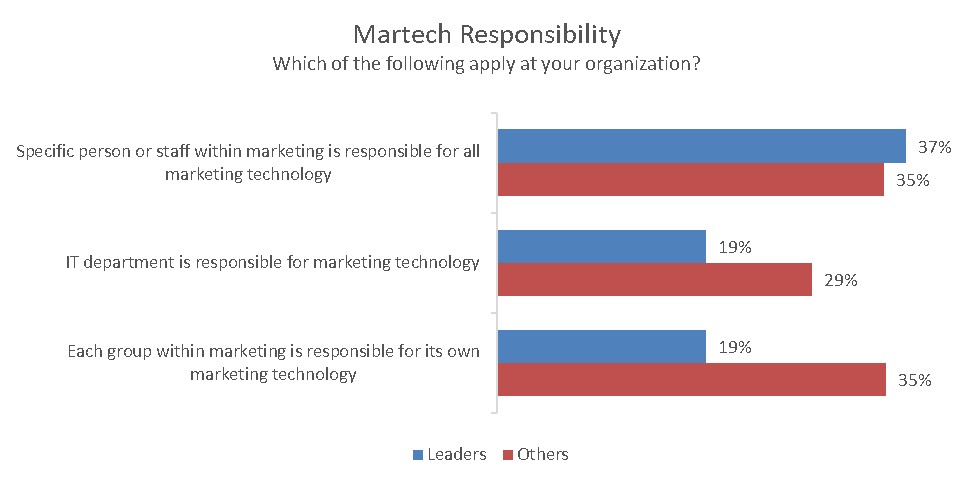TMW #009 | Optimizely and Episerver, brand marketing for tech companies and the rise of therapy tech
Welcome to The Martech Weekly, where every week I review some of the most interesting ideas, research, and latest news. I try to look to where the industry is going and make sense of it all.
Here's everything you've missed in marketing and technology this week 👇
👌Top #3
🧪 Optimizely and Episerver. Last week it was announced that Episerver has acquired Optimizely, which took the experimentation and CRO community by surprise. According to Pitchbook Optimizely was valued at around $600 million and has raised approximately $200 million since it's founding, including a $105 million cash injection just last year. Optimizely is also backed by Goldman Sachs and Accenture Ventures. So big backers, a significant cash injection, and a consistently growing base of happy customers across many verticals means all positive signs into the acquisition. However, despite Optimizely being integral to digital ways of working for almost every verticle, the company had to recently lay off about 15% of its workforce due to COVID-19. Some would say that the acquisition was a move of desperation on Optimizely's part, however, I disagree. The 15% layoff was a speed bump for a tech company who has seen explosive growth over the past 5 years - about 25% of all Fortune 100 global companies are Optimizely customers, and what's more the brand has become synonymous with how people talk about CRO and optimization. What's more their recent push into DevOps pipelines with products like feature flagging is impressive. I would go so far as to say that when it comes to strategic and technical engagement with everyday users, Optimizely are leading. So why the acquisition? This looks to be more of a strategic move for both parties. Adobe and Oracle and soon enough Salesforce all have enterprise-level optimization platforms (Target, Maxymizer) that are encroaching into integrated ecosystems. Episerver wants a bigger slice of the enterprise cloud pie so acquiring Optimizely will be a power move that will give Episerver a bigger seat at the table. But the trade-offs are clear, acquiring tech is not the most straight forward way to integrate it into the cloud. And while the acquisition could mean better native integrations with Episerver's commerce, content, and intelligence cloud products, we could also see less of a focus on the middle market, opening opportunities for other players like AB Tasty and VWO. Link
💊 Catch doubles down into brand. An interesting story has come out this week on how Australian brand Catch is changing up its strategy from a 95% performance marketing and 5% brand marketing spend focus to a 70% - 30% split with a much bigger push into traditional marketing. To use CMO Ryan Gracie's words Catch is getting off the "performance marketing drug" and shifting into traditional avenues of marketing as it rides the COVID-19 explosion of online retail coupled with some serious backing from the Wesfarmers group to the tune of $230 million. What's interesting is that Catch's perspective is changing when it comes to digital, putting up a TVC or a billboard ad doesn't' give the digital team a sense of immediate feedback or instant validation that their strategies are working. So often this argument goes the other way, where brands are working hard to make their marketing more measurable. And so we have an interesting juxtaposition; traditional brands are drilling down into measurable digital channels while pure-play online brands hoist slogans onto giant billboards. This seems to be the natural progression on both sides, however, in recent years the effectiveness of SEM, PPC, and display advertising has grown increasingly dubious and riddled with fraud and bad metrics causing CMOs to become more skeptical of the promises of digital. Catch is now Australia's 3rd largest online marketplace behind Amazon and Ebay, doubling revenue in the last 12 months. It's still early days but a pivot into brand marketing may be what gets Catch overtaking eBay. Let's see. Link
🙋♂️ The rise of therapy tech. This week was RU OK day, and so I looked at what's happening in the counselling app space. The therapy app market is gaining significant traction globally especially in places like China where an estimated 12% (173 million) people live with a mental health disorder compounded by a general stigma around therapy use for men. This is compounded by developments in the global health apps market which is expected to grow by 23% by 2027. It's a bit of a catch 22, as a leading cause of mental health is social distancing through the usage of technology, the general solution is to provide these services on the platforms that contribute so significantly to the initial problem. Globally, the opportunity for therapy apps exists mostly in Asia and developing nations where there is a significant shortage of trained professionals. An example here is China which has four-times fewer trained professionals than the global average, and so it makes sense to be able to provide counselling services to anyone who has a smartphone, now estimated at 3.8 billion people. The space is still dominated by startups, however, if the success of the Australian app Hotdoc is anything to go by there could be a reasonable market that can lower the cost of accessible mental health care while driving innovation in the space. Will we see VR counselling sessions? Probably. Will we see marketers use the dark arts of UX to drive growth? Ironically, I think so. Will more people globally be able to access someone to have a chat? I certainly hope so. Link.
📈Chart Of The Week
David Raab from the CDP institute has done some interesting research around current trends on when a CDP will fail an organization. There's a wide coverage on technology selection, team orientation implementation practices type of data unification and more. What strikes me from this research is the stark difference between leaders in data orchestration and those who are not leading in the market, two things jump out immediately. First, leading companies tend to have dedicated staff within the marketing department who are guiding their company's use of marketing technology, while those who are lagging behind tend to rely traditionally on the IT department. When it comes to using company data to drive customer experiences better results come when the marketing team is upskilled in tech and not the other way around. Second, leaders also tend to adopt agile/scrum ways of working when implementing, maintaining, and improving their marketing technology and CDP investments. For a lot of marketing teams, running an agile practice is still a fairly new world as these work patterns are more associated with digital teams, yet it is one of the key ways leaders are differentiated from everyone else. Link

📚 Everything Else
Apple is delaying the IDFA apocalypse for app developers. Apple's back peddling was almost immediate. Link
Google has launched their first no-code app development platform. Link
How Amazon makes profit. Link
Musicians are changing their creative output as the music technology industry changes. Link
Why Tiktok is working - content density is a principle that can be applied to almost any marketing strategy. Link
The Taboola and Outbrain marriage was never meant to be. It's not you, it's me. Link
A lending app that will publicly shame you if you're late on a loan payment. Link
A better solution for email double opt - in: "Magic" opt in. Link
Australian companies like Whispr and Afterpay have grown by 170% during COVID-19. Scale-up fintech is in its own kind of heyday. Link
Tumblr is planning to monetise with paid subscriptions. For what reason I have no idea. Link
An interesting coffee subscription product. Link
A "museum" for old school windows media player skins. Link
Until next week!
Make sense of marketing technology.
Sign up now to get the full version of TMW delivered to your inbox every Friday plus an invite to the slack community.
Want to share something interesting or be featured in The Martech Weekly? Drop me a line at juan@themartechweekly.com.



